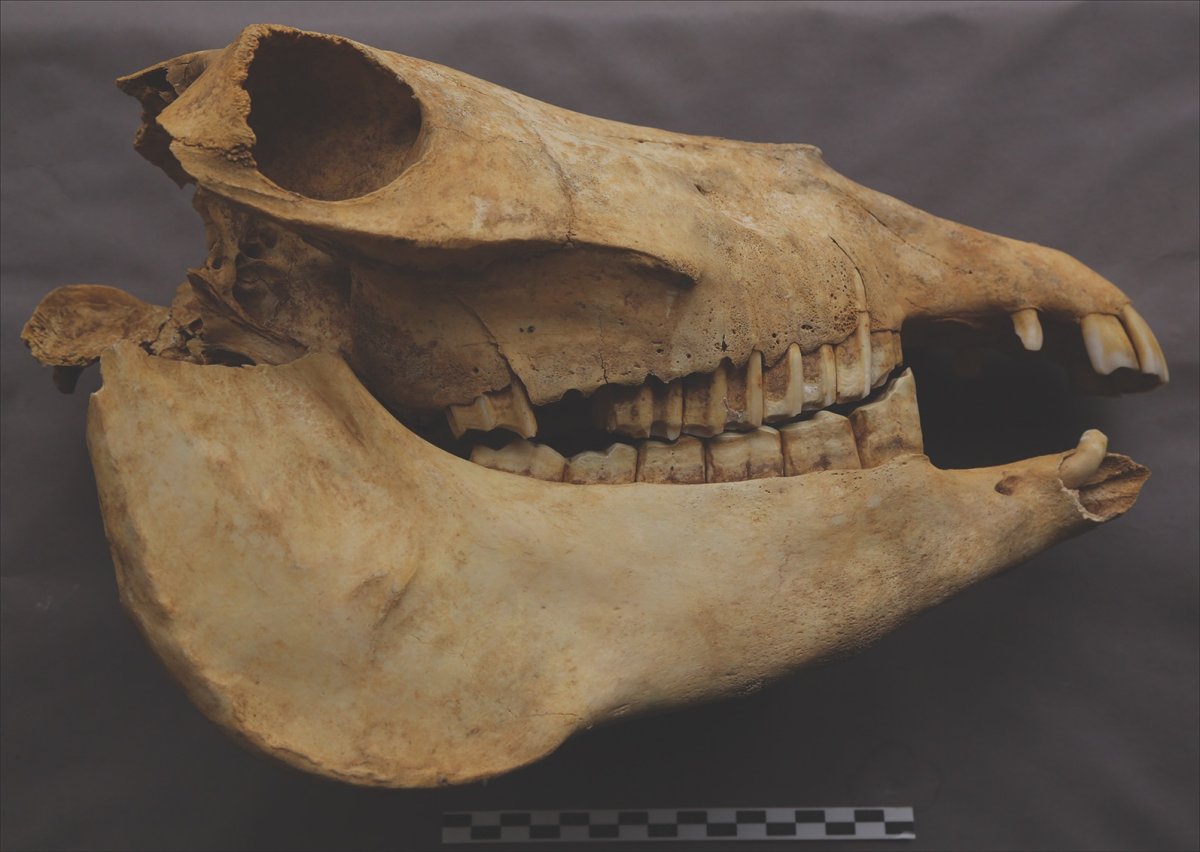Researchers have uncovered the remains of donkeys in the tomb of an ancient Chinese noblewoman who died in Xi'an in A.D. 878.
According to a study published in the journal Antiquity, the woman—known as Cui Shi—was buried with the donkeys so that she could play polo in the afterlife.
While ancient Chinese texts from the Tang Dynasty (618-907 A.D.) indicate that noblewomen played polo riding donkeys, the authors say the latest discovery represents the first archaeological evidence of this practice, highlighting the significance of these animals for the elite of imperial China.
Donkeys were widely used across the ancient world as beasts of burden, facilitating trade and transport. But unlike horses, it was uncommon for the animals to be used in warfare, or for elite entertainment, leisure activities and transport. Thus, the latest study broadens our understanding of their role at this point in history.
"Donkeys were the first pack animal, the steam engines of their day in Africa and western Eurasia, but we know almost nothing about their use in eastern Asia," Fiona Marshall, an author of the study from Washington University in St. Louis, said in a statement.
"Donkey skeletons just have not been found—this is probably because they died along trade routes and were not preserved," she said. "The donkeys buried in the Tang Dynasty noble tomb in Xi'an provided a first opportunity—and a very rare one—to understand donkeys' roles in East Asian societies."
Experts think that polo—a game traditionally played on horseback—originated in ancient Iran, spreading across the territories of the Parthian Empire (c. 247 B.C.–A.D. 224.) By the seventh century A.D., the game was being played on the Tibetan Plateau and central China.
At the time, it was considered a prestigious sport, played by the military and the nobility of the Tang Dynasty, which was centered around the cosmopolitan city of Xi'an, located at the starting point of the Silk Road.
So important was the sport that one Tang Dynasty ruler, Emperor Xizong, even used a polo competition to select military generals. In fact, one of the winners of this competition was the husband of Cui Shi. Nevertheless, the game was dangerous to play when large horses were used and sometimes resulted in fatalities.
A similar sport known as "Lvju" using donkeys—smaller and steadier animals than horses—became popular among elite women and older individuals. But while Lvju is mentioned in the historical literature, it had only previously been documented in artworks and artifacts.

For their study, the researchers carried out radiocarbon dating and analyzed the donkey bones of Cui Shi's tomb, which was first excavated in 2012.
According to the team, the stresses they observed on the bones indicate that the donkeys buried in the tomb were used for tasks other than burden carrying, with the presence of a stirrup in the tomb—in addition to the owner's status—making it likely the animal was used for polo. At this time in Chinese history, animals were often placed in tombs so that they could be used for specific purposed in the afterlife.
"There was no reason for a lady such as Cui Shi to use a donkey, let alone sacrifice it for her afterlife," Songmei Hu, another author of the study from the Shaanxi Academy of Archaeology, said in a statement. "This is the first time such a burial has been found."
Uncommon Knowledge
Newsweek is committed to challenging conventional wisdom and finding connections in the search for common ground.
Newsweek is committed to challenging conventional wisdom and finding connections in the search for common ground.
About the writer
Aristos is a Newsweek science reporter with the London, U.K., bureau. He reports on science and health topics, including; animal, ... Read more
To read how Newsweek uses AI as a newsroom tool, Click here.








